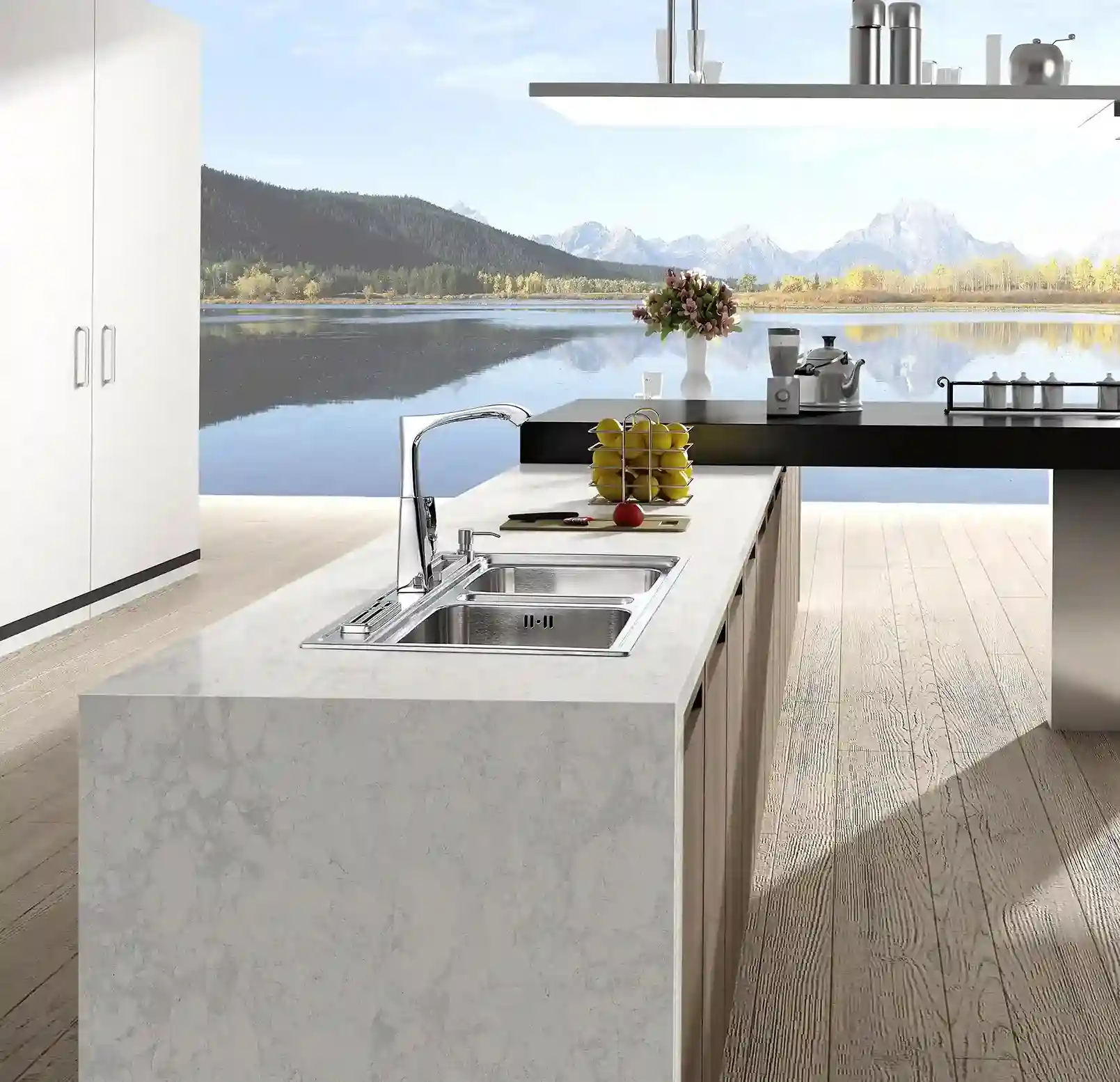Quartz vs. Granite: Which Worktop Material Suits You Best?
Choosing between quartz and granite for kitchen worktops can be hard because each have their own
beneficial features that can enhance your space. Here is a summary of the key differences to aid
your decision making.
Durability
Quartz: Quartz worktops are made from natural quartz crystals and resins which
results in excellent durability. Quartz worktops offer excellent resistance to scratches, stains,
heat, and impact.
Granite: Formed from molten magma, granite worktops are primarily composed of
quartz, feldspar, and mica. They are highly durable, although they can be slightly more prone to
chipping or cracking under extreme pressure.
Maintenance Requirements
Quartz: Since it is non-porous, it requires no sealing, resists stains, and prevents
bacterial growth.Being non-porous, it doesn’t require sealing, resists staining, and doesn’t harbor
bacteria.
Granite: Granite worktops are fairly simple to maintain, though they should be
sealed (usually once a year) in order to protect its porous surface from stains and moisture.
Beautification
Quartz:Quartz worktops have modern manufacturing that allows for many colors and
patterns including styles that look like natural stones like marble or granite. So they provide
greater flexibility in design and more consistency in looks.
Granite:The natural beauty of granite cannot be outdone, each slab has its unique
veining and patterns, which look the way they do because of the natural process of formation over
millions of years. This adds charm and character to any kitchen.
Cost
Quartz: Quartz is generally less expensive than granite, however the costs will vary
depending on color, pattern, brand and availability.
Granite: Granite is generally more expensive than quartz as costs vary depending on
the material’s rarity, complexity of the pattern etc, and thickness of the slab. Some may feel that
the qualities of durability and resilience can be justified by paying a higher price for the same
applications.
Both quartz and granite can each have their own advantages, so which one you choose will depend on
what is important to you whether it be the durability and lower maintenance of quartz compared to
the natural beauty and uniqueness of granite. Think about your individual needs and comforts and
which one fits into your kitchen or bathroom plan.





